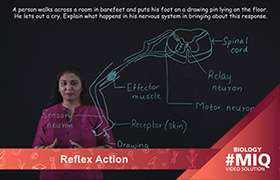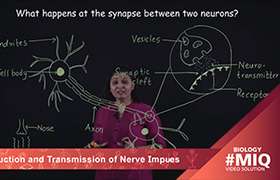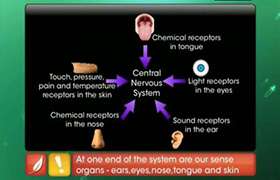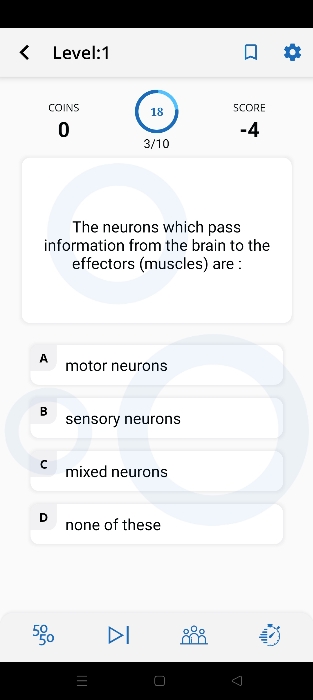CBSE Class 10 Answered
When an impulse travels through a neuron, following events occur:

In resting condition, the outer side of the nerve fibre carries positive charge i.e. more Na+ ions outside the axon membrane. This is called the polarised stated or polarisation of the nerve fibre.
When the impulse travels through neuron, the axon membrane at the site of stimulation becomes more permeable to Na+ ions. Thus, Na+ ions move inwards and results in the loss of polarisation which is known as deploarised state or depolarisation of the nerve fibre. Such region of the nerve fibre is known as the 'excited region'.
The point of depolarisation becomes the stimulus for the next region of the axon membrane which in turn becomes depolarised.
The previous region on the membrane becomes repolarised due to the active transport of Na+ ions to the outside of the membrane.
These events occur across the length of the neuron and hence the impulse is transmitted from one end to the other end of the neuron.












